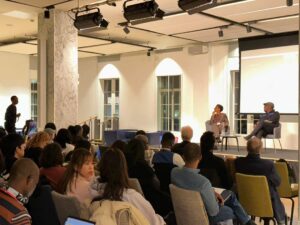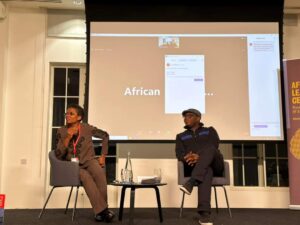Former governor of Ekiti State Dr Kayode Fayemi has said that to address weaknesses in engaging with the changing world order, Africa must fill gaps in policy and leadership.
Fayemi stated this in his capacity as Visiting Professor, where he delivered a keynote lecture on ‘Shifts in Global Power Relations and Implications for Africa,’ organised by the African Leadership Centre in the School of Global Affairs at King’s College London.


The former chairman of the Nigerian Governors Forum (NGF) posited that
tackling structural drivers of conflict, particularly poverty and inequality, is necessary for sustainable peace. Investment in developing leadership capacities is essential for navigating this rapidly changing world.
The world, including Africa, faces numerous conflicts and challenges, from tensions between Russia and Ukraine to crises in the Middle East and various conflicts within Africa. These issues underscore the necessity to reassess traditional assumptions in international governance. Climate change, pandemics, inequality, demographic shifts, and declining trust in governments further complicate the global landscape.
“In my lecture, I discussed three interconnected arguments concerning shifts in global power relations and their implications for Africa. First, I emphasised the role of history in shaping these dynamics. Second, I talked about the pace, process, context, and implications of global power shifts. Finally, I highlighted Africa’s centrality in reshaping the world and stressed the importance of it becoming a co-rule maker in the emerging new world order.”
Scholars discuss the emergence of a multipolar global order which indicates a transition filled with doubts and fears. The need for enlightened leadership is important, but the current political space is dominated by narrow nationalism, xenophobia, and militarism. Some even suggest the world might be on the brink of a third world war.
Amidst this, existential threats extend beyond military conflicts to climate change, triggering fires, floods, hurricanes, and migrations. Africa, too, faces security challenges influenced by global dynamics. The continent experiences turbulence from external factors like the COVID-19 pandemic, economic crises, and climate change. Despite historical successes in collective responses to challenges, regional peace initiatives appear to be losing momentum.
Visionary leadership is essential for Africa to navigate the evolving global order. The continent’s demographic advantage could be leveraged to collectively influence the new world order. The current geopolitical landscape, evident in voting patterns and attendance at international summits, indicates Africa’s potential to play a key role. However, the continent needs to move beyond donor-recipient dynamics in engagements with other nations and establish a clear, shared agenda.